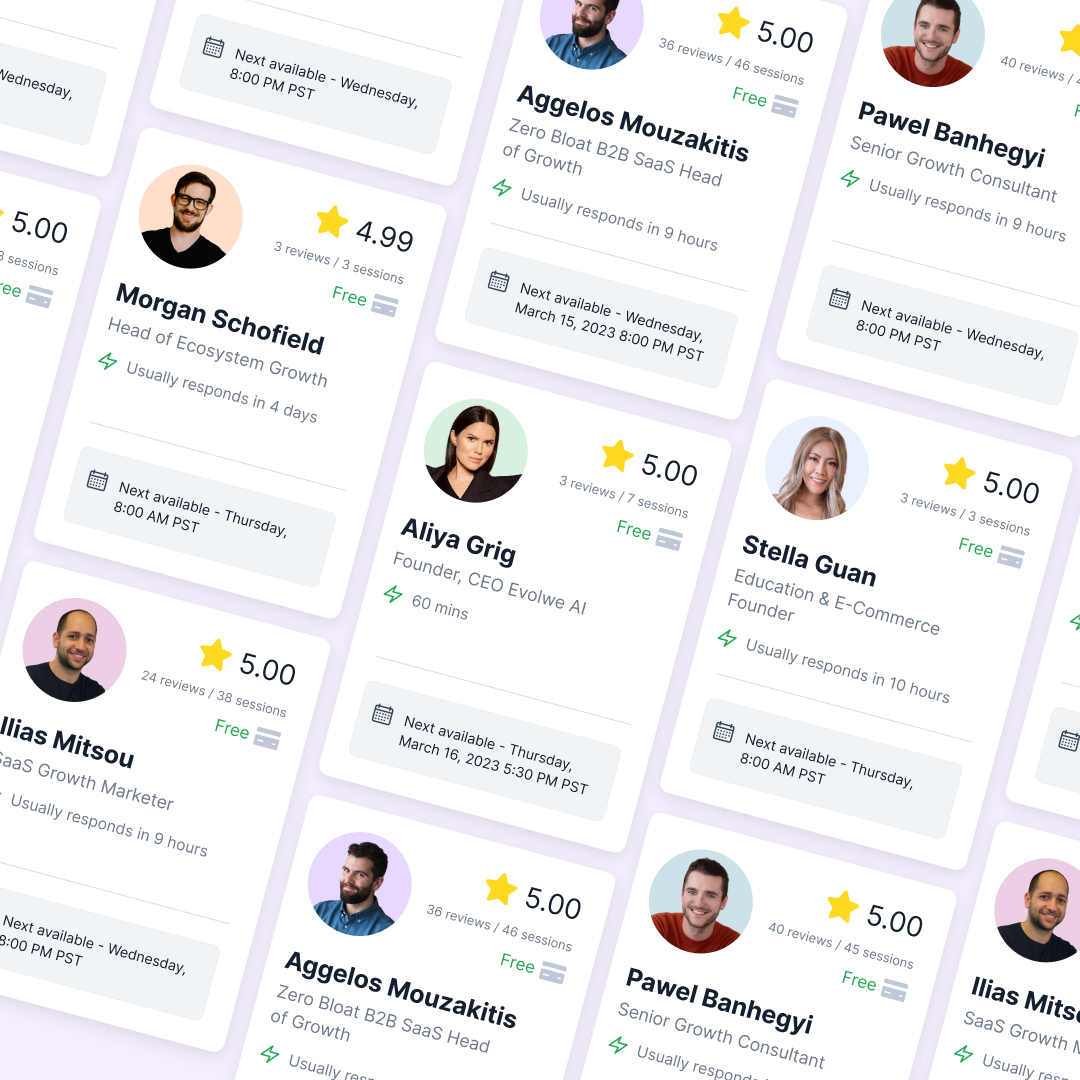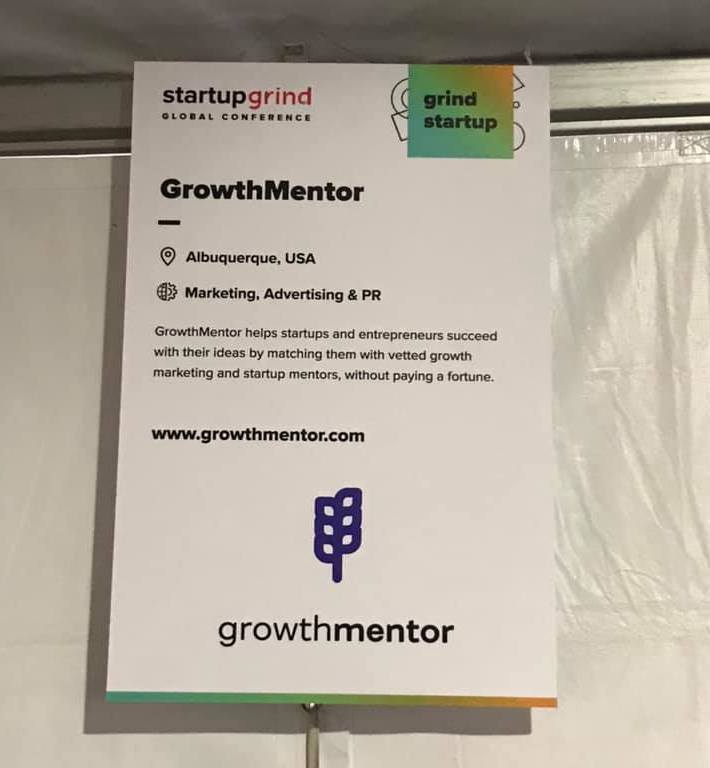How to Hire A Technical Product Manager (TPM) if You’re Not Technical
If you’re in charge of hiring at a startup, chances are HR is not the only hat you’re wearing.
And sometimes, a hiring request may leave you scratching your head a bit.
Such as trying to hire a technical product manager or TPM for short.
If this sounds like you, never fear. The following article is packed with actionable, easy-to-understand advice straight from one of our mentors who has done it himself!
Your Featured Topic Expert

Product Marketer for Technical Audiences
Mentoring style: Player-coach. Will show one way of how to go about doing things, work patiently until you learn the ropes, but simultaneously is also very curious about experimenting if you show him a better way of doing it instead.
Book a Call with Renga If:
- You need to hire for a technical product manager role (obviously, as it’s why you’re reading)
- You’re part of a team at an early-stage startup that’s led by a technical founder
- You want a mentor who can seamlessly transition between technical and non-technical explanations
- You’d like for your mentor to go in-depth with you on a topic and converse at length about both theory and practice.
For a bit more about Renga: he worked at Deloitte for 9 years, building the product and design teams from 8 to 1000 over that span. And he was Director of Product at Nike, also building the data and analytics teams.
He’s now co-founder of Anushka Ventures, a firm advising and consulting at the intersection of product, product marketing and content for startups around the world.
In short: he knows a good bit about what makes for a good technical product manager, which is exactly why he’s our featured expert for the topic.
So, let’s dive in, starting with what a technical product manager actually is.
What Is A Technical Product Manager?
A technical product manager can be thought of as a product manager+.
Essentially, a technical product manager takes all of the skills of a typical PM, then layers on an element of intense technical understanding.
Now, does this mean a TPM has to come from a technical background? No. They simply need the skills to deeply understand their product’s technical audience, analyze data to determine the causes of product issues, align build-vs-buy decisions, and create and drive the technical backlog for their product.
For those of you who would like a more in-depth explanation of a TPM’s role and typical responsibilities, we highly recommend reading Renga’s article on the topic:
What is a Technical Product Manager? A Complete Guide
How to Prepare to Hire a TPM When You’re Not Technical Yourself
As you likely know, the task of hiring in a product-driven organization usually falls to someone outside of the product or engineering team. In other words, hiring typically isn’t done alone by a technical team member.
And if you’re that person, you’re probably wondering how on earth you’re supposed to make a technical hire.
Here, Renga has some great words of advice:
“This hire is going to be a team member before anything else. So forget about them being technical. Know what you want in a team member first.”
It may sound counterintuitive. However, the skills that separate technical product managers from other PMs can often be learned. The soft skills and “fit” with your team and company can’t be.
Renga also suggests bringing in a technical colleague in with you to assess candidate’s technical expertise. This is especially true for smaller teams that may not have hired very many people yet, so bringing someone who can work and communicate technical product needs with the rest of the team is essential.
As you interview candidates, keep track of 5-10 of the most common questions you ask during interviews. You can then use those to generate a series of video screener questions for future roles. Renga notes: “You’ll get a little bit better each time you hire someone, and also save precious time for your team by arranging these video screeners before the actual interview.”
How Do You Assess TPM Candidates?
Often, hiring managers point out that it’s hard to accurately assess a candidate during the interview process. As Lazar Jovanovic, GrowthMentor member and VP of Business Operations at Citizen Shipper, pointed out in a session with Renga, “some are great at interviewing but may not be good at the actual work, whereas others are great at the work, but get nervous during interviews.”
And when you’re trying to hire for a role that’s outside your wheelhouse, so to speak, that difficulty is compounded.
For technical product manager candidates, Renga calls out 5 areas of expertise you should pay attention to during interviews:
Ability to do research, especially market research
While most product managers are comfortable with user research, not quite as many have the same comfort level with competitor and market research. But for a technical product manager where the space can shift rapidly, this skill is critical.
Interestingly enough, this is where TPMs from product marketing backgrounds, in spite of not typically holding technical roles, may have an advantage over their more technical counterparts.
Their decision-making process, particularly when emotions may be involved
A TPM candidate must be able to remove (or at least minimize) their emotional drive in their decisions. The decisions should be based on sound data and an understanding of company goals. Renga gives the example of making a “build vs. buy” decision for a certain piece of internal software:
“Engineer-turned-PMs may find building natural and compelling. They’re willing to put in the weekends and extra hours if needed. But if that’s not the best use of the company’s resources, that’s not the best decision for them to make as a TPM.”
Their comfort in working and communicating with non-technical stakeholder-facing teams
Renga describes technical product managers as typically working “upstream” from non-technical stakeholders. They manage the flow of data and are often hands-on in creating needs for analytics or dashboards for other teams.
On the other side of matters, the same TPMs are often “downstream” from their technical counterparts like developers and engineers.
Thus, TPMs may have to act as translators, transforming requests from the non-technical team members into technical requirements and interpreting when the technical teams need to pass information on to their downstream stakeholders.
“Great technical product managers aren’t just information forwarders.'” Renga says. “They’re able to evaluate appropriate information and translate and communicate at both ends of the spectrum, so the downstream stakeholders have everything they need to make good decisions.”
Their decision making process when weighing cost vs. impact
For Renga, this facet of TPM work comes down to: “can a candidate figure out, realistically, given the resources and time available, can this feature or product be built?”
Ultimately, it’s a question of decision-making intuition. Which, once you hire, your candidate will be able to hone better.
However, to test this in an interview, Renga suggests presenting a “build vs. buy” scenario.
You’re looking for two primary points:
- Can they evaluate their options based on a quick proof of concept or do they get stuck in analysis paralysis with alternatives?
- Can they decide if this is outside their team’s wheelhouse to build? Sometimes the better option is to buy rather than build. The team may reach an inflection point where they outgrow the capacity to “tweak” the product to their needs, but this new inflection point would then be another “build vs. buy” scenario down the road.
Ability to prepare for issues, especially in product drops and launches
While committing to something and hitting deadlines sounds like a simple task, it’s not always so straightforward in product management. Technical setbacks, unexpected resource constraints, and issues in stakeholder communication can all lead to delays.
In the technical product management world, the impact of these delays is magnified. TPMs must have an “end-to-end” understanding of the product lifecycle to assess the long term impacts of not meeting a deadline and know which teams and stakeholders need to have those changes communicated to them.
The classic scenario would be a data blackout, or a situation where data is being partially (or in the most disastrous of circumstances, completely) dropped within a company’s pipeline to and from the data warehouse.
“This is fairly relatable for a TPM.” Renga says. “If you present this scenario in an interview, you want to see three things from your candidate:
A. Do they keep their cool? They shouldn’t be freaked out because data isn’t coming in.
B. They informed leadership about what was happening and informed the relevant teams as well.
C. They figured out a solution to ensure business continuity and then decided on prompt fixes.
D. They implement process changes to mitigate such scenarios.”
If you’ve found a candidate that checks these boxes above, you’re well on your way to finding a great TPM.
But of course, there’s also the flipside: convincing that candidate your company is a good fit for them.
Putting Your Company’s Best Foot Forward
So far, we’ve focused primarily on what hiring managers should look for in a candidate. But, let’s take a look at how your company can set internal expectations to score stellar talent.
Before you even start with interviewing candidates, consider your job description. Realize that this is a guide to an ideal candidate. As Renga says: “Someone who matches the job description exactly is like a unicorn. They might exist, but I’ve never seen one myself in the wild.”
Thus, set your team’s expectations as such. It may be worth examining each bullet point of your job description and assigning “must have’s,” “nice to have’s,” and “pleasant bonuses.” That way, anyone screening submissions will know when a candidate should be passed to the interview stage, even if they don’t fit every element of the job description.
And remember, a technical product manager does not necessarily mean their resume is technical.
“It’s not whether they’re from a technical background,” Renga says. “As long as someone has spent enough time around engineers and devs to be able to communicate: ‘The API isn’t showing me customer address data. We need these fields for the app teams to consume.’ and the developer can respond with: ‘Great I’ll check the API about this,’ then they have sufficient technical ability.”
When it comes to the interview, you want to be the company that asks the questions candidates wish everyone would ask. Two of Renga’s favorites are:
- Technical product management is a unique role. So, what’s unique about you as a candidate?
- What aspects of the job description play to your strengths and what elements are you willing to learn?”
The first is a great new twist on the “tell me about yourself” question. It offers the candidate a chance to do some storytelling, but provides a clearer frame than a question like: “tell me about yourself.”
And the second question is particularly clever as it covers multiple bases at once. It can help determine if a candidate is humble enough to admit their weaker areas and has a growth mindset. Plus, it can significantly ease a candidate’s nerves to realize they’re not expected to know everything immediately on Day 1.
With all of the above in mind, your company should be able to attract a fantastic technical product manager.
But, if you want to go above and beyond, consider what to do after you’ve hired as well.
Setting Your Hire Up For Success
Once you’ve made your hire, there are a few “extras” you can do to truly set them up for a successful start.
Renga likes to stay in touch with candidates in the gap between their job acceptance and their true start date. Of course, you’ll want to ensure such contact is within any hiring regulations in your country. But inviting a hire to the office for a tour and coffee or sending them an invite to join a team social meeting over Zoom can go a long way towards easing the “newbie nerves.”
Then, provide your new hire with content outlining onboarding steps they’ll need to take and expectations they’ll need to meet on days 1, 7, 30, 60, and 90. It’s a great way to ensure you’re both on the same page about timelines and clarify any remaining duties that may not have been clearly outlined during interviews.
From there, it’s simply a matter of letting your new technical product manager work their magic.
Now, if you’re hiring for a technical product manager, but are still feeling a bit shaky about the process even after reading, we highly suggest booking a call with Renga to talk through your company’s specific situation.
Simply click “Book a Call” in the sidebar to join GrowthMentor to get Renga’s expertise along with almost 700 other mentors today.
Find Your Business Mentor




